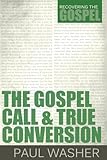Here in France, church commitment is a real issue. Most people see church as something optional. Church is a voluntary based organisation. It doesn’t really matter if I don’t attend, and when my local church doesn’t reach my expectations any more, I find another one.
In many churches, a minority are faithfully committed to the church but the majority isn’t. They will attend most Sundays unless they have something better to do, or feel too tired to go to the service. Most will never bother with a midweek meeting. In one church I know, it seems that some members only attend services when they are on duty like preaching or leading the service.
“Why bother with church ?” is a helpful little book. In a few pages it gives compelling reasons why believers should bother with church. It concludes with the question “Why on earth would I not bother with church?” There are only 6 short chapters and it is an easy read. The first chapter is a quick introduction to Ecclesiology: “What is church?”. The other chapters answer various practical questions: why do I need church? What makes a good church ? There is also a chapter on church government. The last two chapters: “How do I survive church ?” and “How can I be a good church member? are especially helpful.
I liked that the author doesn’t push his own ecclesiology (he is an Anglican), but at one point, he wisely tells his readers that if they want to go deeper on a specific issue, they should talk with their pastor.This little book is practical and pastoral. You will understand that the reason you find church boring “has to do with the mindset with which we arrive week by week.” So instead of coming to get something out for yourself, try to think how you can serve others.Read “Why bother with church”. Use some of its arguments in conversations. Get a few copies and hand them over around you. Make sure that young believers read it and understand it. Personally, if I were to use it, I would take each chapter heading and make a series of sermons. Actually, I wonder whether it started as a series of sermons.




 [/amazon_link]Although we never had Family worship when I grew up, I’ve long been convinced of the necessity of family worship. My convictions were reinforced a few months ago when a young man working with students here in France told me that many young people from a christian background who arrive in university have difficulties sharing the gospel. Even formulating the basics of the faith seems a challenge.
[/amazon_link]Although we never had Family worship when I grew up, I’ve long been convinced of the necessity of family worship. My convictions were reinforced a few months ago when a young man working with students here in France told me that many young people from a christian background who arrive in university have difficulties sharing the gospel. Even formulating the basics of the faith seems a challenge. [/amazon_link]This book is a most welcome volume on a most important subject: conversion. There’s much confusion on the subject in the evangelical scene today. Many people are rushed into false assurance when it is clear they have never understood the gospel, repented and believed. It is time to go back to the Word of God and ask ourselves whether our idea of conversion is biblical or not. I am afraid that for many people around, it isn’t.
[/amazon_link]This book is a most welcome volume on a most important subject: conversion. There’s much confusion on the subject in the evangelical scene today. Many people are rushed into false assurance when it is clear they have never understood the gospel, repented and believed. It is time to go back to the Word of God and ask ourselves whether our idea of conversion is biblical or not. I am afraid that for many people around, it isn’t.